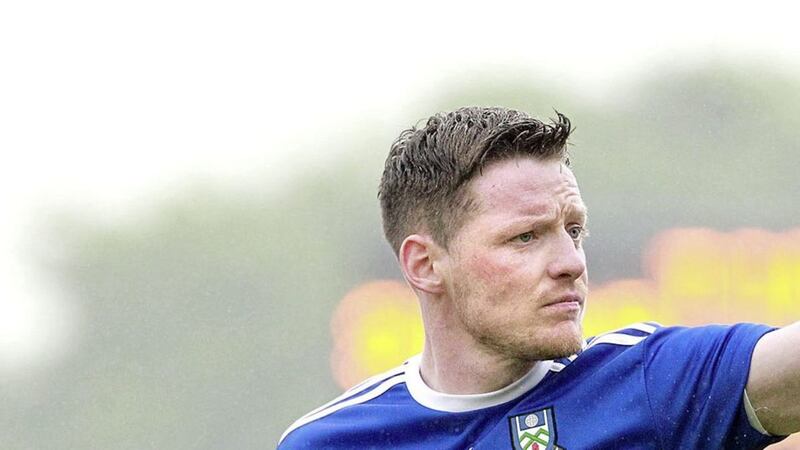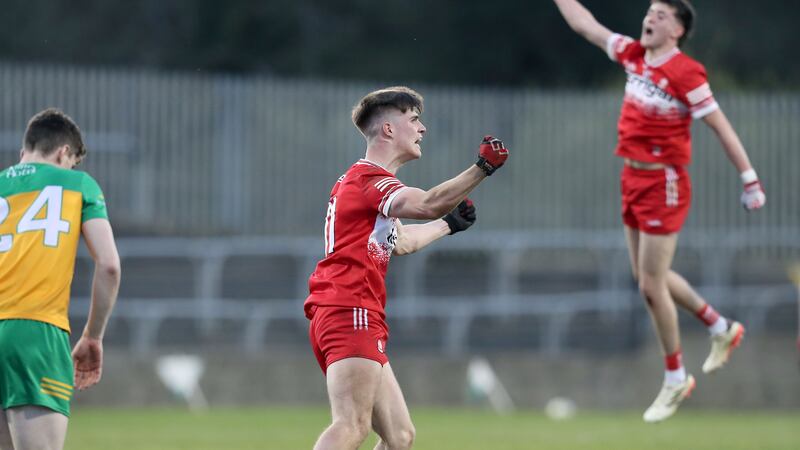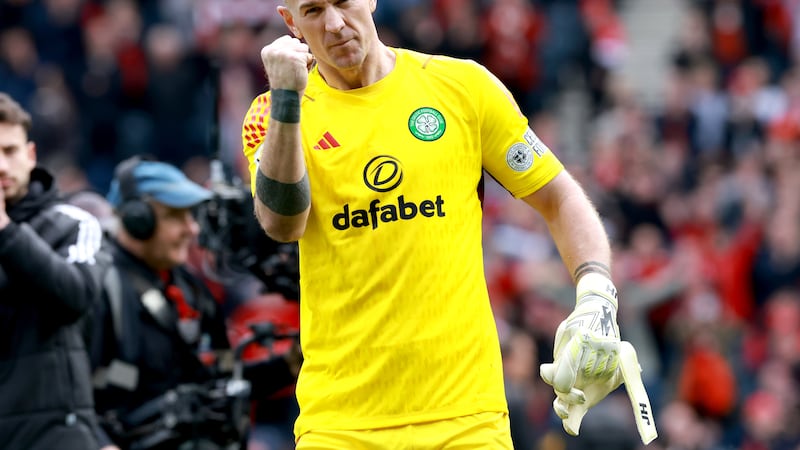JORGE Valdano, Argentina’s World Cup winning striker of 1986, described Lionel Messi as “the first genius of the 21st century and the last bridge between the street and the academy.”
No academy could teach what Messi has. That kind of genius was shaped on the streets of Rosario, and later nurtured in La Masia.
The street is the best place to learn. It’s where a child’s imagination is at its most fertile.
On the street, or a field, is where you learn technique.
Up in Cushendall, former Antrim Allstar hurler Terence McNaughton used to hit a ball with half a hurl against a ruined cottage wall once owned by a guy called James Stewart.
That’s where his hurling skills were honed.
“We’d no Xboxes back then and you didn’t control the TV that had three stations,” McNaughton recalled. “Your father controlled that. You couldn’t watch TV so what do you do?
“It wasn’t a conscious decision of: ‘I’m going to be a good hurler’. You’d nothing else to do.”
McNaughton turned out to be a brilliant hurler with the heart the size of Mount Lurig.
Due to a club-county dispute down in Ballygawley, the young teenager Peter Canavan was deprived of competitive football for a couple of seasons.
Canavan spent endless hours on a field called the ‘Holm’ where he perfected his art.
“The fact that I wasn’t being thrust into competitive situations was giving me the opportunity to practise,” Canavan said.
“The development of my left foot was primarily down to that fact. I would have practised at the ‘Holm’ kicking points over the bar on my own.
“There was a big grassy bank directly behind the goals, so I had my own Hill 16. If a shot went to one side of the goals in particular the ball could end up in the river. So I would kick the ball from 30 yards and chase after it before it reached the river.
“Without that, I might not have got the opportunity to develop the skills in the way that I did.”
Nowadays, most kids are scooped up and brought to coaching schools where they learn a different set of values: team-work, positional play, tactics. Important stuff.
But their imagination is diluted because they’ve been deprived of the street.
In splendid sunshine, the streets and fields of my childhood are eerily empty. It’s the Xbox effect.
The young clever artisan that dares to try something different with the ball is sometimes viewed with suspicion. He can’t be relied upon to follow the tactical plan. He’s too light. Too small. Too much of an individual. Too much of a luxury.
The greatest mistake a coach of any sport can make is focus on what a kid can’t do rather than celebrate what he can do.
In many instances, the starting point is all wrong.
Perhaps with slightly broad brush-strokes, GAA President John Horan wants the whole development squads structures within the GAA re-appraised as he doesn’t like the notion of creating a culture of elitism among young players and all the trappings that go with it.
Horan might be on to something.
Like many field sports, Gaelic football has become a Darwinian pursuit and it’s hard to insulate and protect potential genius from a whirlwind of stats, targets, strength and conditioning, GPS, sweepers, withdrawn forwards, blanket defences and high presses.
The game has become too mathematical and the spectacle is generally suffering as a result.
That said, there are still a few remaining geniuses that remind us of the infinite possibilities of Gaelic football and what can be achieved by individualism rather than regimented systems.
Donegal’s Michael Murphy doesn’t immediately strike you as a genius, but he played like one in Dr Hyde Park last week.
Moved to full-forward for a surprisingly long period of the game against Roscommon, Murphy’s unrivalled intelligence was the glowing feature of the day.
The Glenswilly man hit five points and was the ultimate team player. Murphy may be pushing 15-and-a-half stone but he has wonderful feet and movement; he also found an extra two yards of pace from somewhere down in the west.
Twenty-four hours later, Clones feasted their eyes on another couple of geniuses – Monaghan’s Conor McManus and Kerry’s David Clifford.
Players like Conor McManus provide constant reminders of what greatness looks like on a football field and explains with great clarity why we’re drawn to Gaelic football.
His unerring ability to make the difference in big Championship games is truly staggering.
McManus’s skills were honed on a small field beside his home where he wouldn’t leave the ball down until he hit 20 consecutive points over portable goalposts his father bought him one Christmas.
Last Sunday was Clifford’s fourth senior Championship match for Kerry.
Barring injury, Clifford will become a footballing legend.
Facing Monaghan’s most obdurate defender Kieran Duffy, the most glowing aspect of Clifford’s performance was how he refused to be intimidated by a canny opponent.
Clifford roared back in Duffy’s face when trying to free himself of the Monaghan’s grip and moments later split the home side’s posts.
He might be a rookie but he afforded Duffy no respect.
It was similar to the way in which Conor McManus quelled Neil McGee in the 2015 Ulster final. McManus refused to be intimidated by McGee’s dark arts and had the temerity to pat the Gweedore man on the back after hitting one of three points from play.
What McManus, Clifford and Murphy have is uncoachable.
They operate within a tactical plan – but they also operate on a different level from everyone else because they know they alone can affect the outcome of games.
They are already inspiring the next generation.








